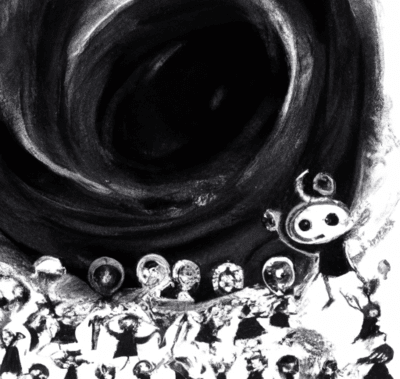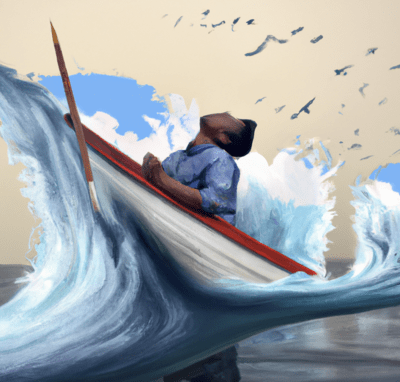"What do you think happens after we die?"
Don't say "people will miss me" or "I will be cremated".
That isn't useful for this conversation.
What concrete answers do we possess about life after we take our last breath?

My hunch is that the afterlife is the experience of perpetual nothingness. Which is as close to no experience as there is, so...that cancels out?
Perhaps sitting in this pitch-black room is influencing that thought (I lost power today). There is little basis for my answer. But who has any sort of "basis" for understanding the afterlife?
What trace of the afterlife do you see?
We crawl, run, and limp our way through life. Dancing in bliss and smelling dying roses. Unbothered about our looming, inevitable, and mysterious journey.
If you were faced with an unsolvable, unknowable, yet inevitable problem: what would you do?
Ignoring uncharted waters can have merit, sure;
The afterlife gives people multiple reasons to escape this life. It is not a good thing.
But we shouldn't ignore something we are all racing to in melanin-coated six-foot-two schooners. That is a recipe for hearing waves crashing all over. Ripping the boat in half, failing to spit out the nasty salt water until you drown.

Therefore, "this situation calls for an openness in approaching the big questions." Perhaps we aren't supposed to know what happens in our next life. But we can at least muse on it. Stretch it. Mold it. Like
His Dialogues leave the reader with more questions than answers.
They're meant to make you think. If you walk away "knowing" something new, then these books have failed.
Plato recognizes that ethical problems are unsolvable, unknowable, yet inevitable. So musing is a more reliable route than answering. When it comes to conversations: Dialogues are the beginning. Not the end.
David Eagleman, through Sum: Forty Tales From the Afterlives, takes the same path as Plato.
Dr. Eagleman stares down an unsolvable, unknowable, yet inevitable problem: the afterlife.
Instead of leading the reader to their own conclusions, he gives forty answers.
All contradicting. All probable enough.

And each distinct tale will affect you.
Some stories are "made of characters that reflect how I feel."But all will make you think.
Read for an ice-breaker for the afterlife.
Sum: Forty Tales is the beginning. Not the end.
Where will you take the conversation?
Made with love and thoughtful contributions from Yingyue Xu, Peter Marino, and Justin Duke.- Myles